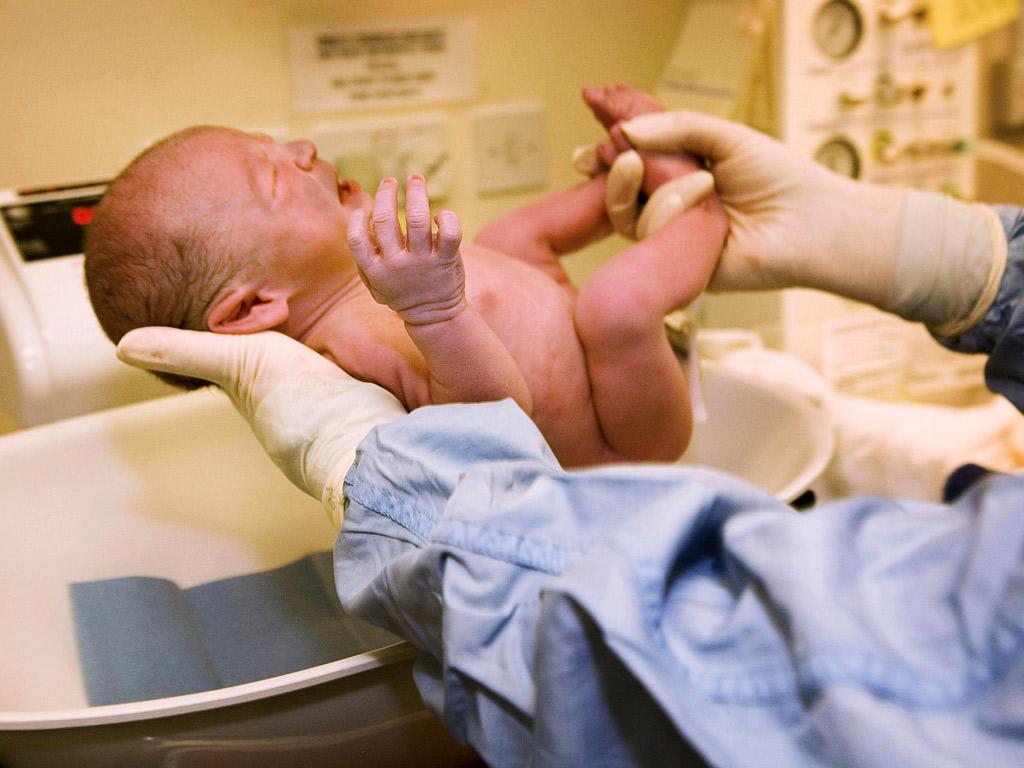British birth rate leaps by 18% in a decade

British women are having significantly more children than a decade ago, with birth rates for mothers in England and Wales up by 18 per cent, official figures show. Improvements in fertility treatments allowing people to start families later and a growing population of second generation migrants are amongst possible explanations for the rise.
More than a quarter of babies born in England and Wales are also now from mothers who arrived in Britain from other countries, according to an analysis of the latest census.
There were 724,000 births in 2011 — of which 26 per cent, 185,000, were to mothers themselves born abroad. At the last census in 2001, just 16 per cent of births were to foreign-born mothers.
Women born in Britain now give birth to more children, according to the UK’s total fertility rate (TFR), which is the average number of children a woman is expected to give birth to in her lifetime. It has risen from an average of 1.56 children to 1.84 in a decade.
The picture is similar in Scotland, where the population has increased by 233,000 – five per cent – since the 2001 census. This represents the fastest growth rate between two Census years in the last century.
The rising population in Scotland has also been driven by births, with 293,000 children aged under five in 2011, an increase of six per cent from 2001.
Seven per cent of people in Scotland said they were born outside the UK, an increase of three percentage points since 2001.
Mothers from Libya had the highest average birth rate of 5.58, closely followed by those from Guinea, with 4.84 and Algeria with 4.32. A spokesman for the Office for National Statistics said that “strong cultural preferences” were likely to be behind the marked variation in birth rates amongst different nationalities.
Polish women were the most likely foreign-born mothers to give birth in England and Wales overall, producing 20,500 babies in 2011. However, the number of babies each had, on average, was 2.13 - lower than the average for foreign-born mothers living in England and Wales.
Women born in Romania and the Czech Republic had the highest TFRs of any EU country of birth (2.93 and 2.77 respectively). However, in 2011 these countries of birth accounted for only a relatively small number of births - 3,500 from Romanians and 1,600 from Czechs.
Oliver Dorman, senior research officer at the Office for National Statistics, told The Independent he thought it was possible the rise in births amongst British born mothers was partly due to traditions of having larger families amongst second generation migrant families.
He said: “It’s likely that second generation immigrants are a factor in this but we don’t have ethnicity on birth registrations, so we don’t have the data to show that. I suspect the larger proportion of births to non-uk born women will be contributing to the UK-born fertility rates too, because of second generation migrants [with cultural ties to their families’ country of origin].”
Dorman also believes women having babies later has contributed to the rise : “We’ve seen over the last ten to 15 years gradual increases in older mothers. More and more mothers are having children at an older age. We’re seeing the same number of births for women aged 25-35 but we’re also seeing women having an additional birth later. These top up rather than replace younger births.”
Figures released last August show this rise in births continued after the 2011 census. Soaring numbers of babies born in the year to mid-2012 meant Britain’s population rose by more than 400,000 in a single year - the largest increase of any European Union member state - putting the total at 63.7 million.
Join our commenting forum
Join thought-provoking conversations, follow other Independent readers and see their replies
Comments
Bookmark popover
Removed from bookmarks